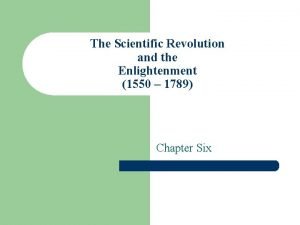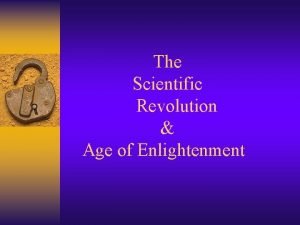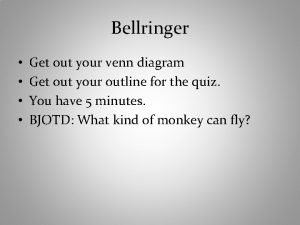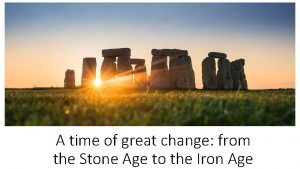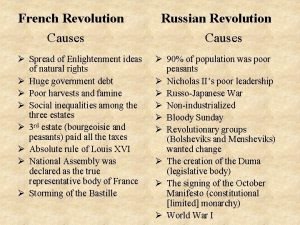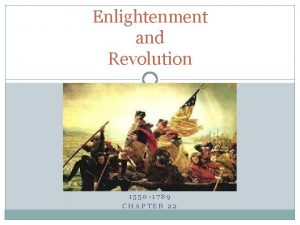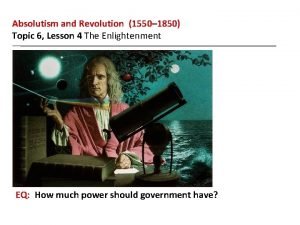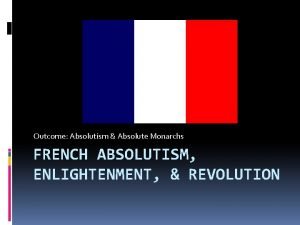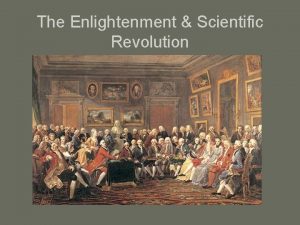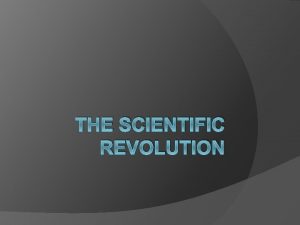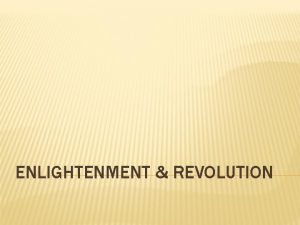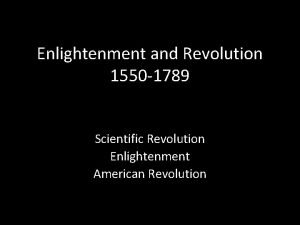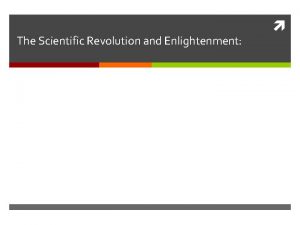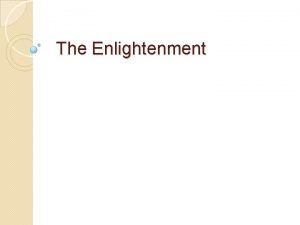The Enlightenment Scientific Revolution Age of Enlightenment aka











- Slides: 11

The Enlightenment & Scientific Revolution

Age of Enlightenment - aka (also known as) Age of Reason Enlightenment = rationality ethics knowledge reform

The Beginning of the Enlightenment • 1500 -1700: European scientists using reason to discover laws of nature – Very successful: Planetary movements, chemistry, vaccine for smallpox, etc. • Early 1700’s: If people used reason to find laws that governed the physical world, why not use reason to discover natural laws? – Laws that govern human nature – Reformers begin studying human nature

Major Enlightenment Ideas • Every social, political and economic problem could be solved through the use of reason • Governments are created to secure an orderly society • Separation of powers is the best way to protect human liberties • All men are created “free and equal”

Enlightenment and Society • • Detested the slave trade and slavery Deplored religious prejudice Defended freedom of speech Attacked divine right theory Urged education for all Hated unequal distribution of property Believed governments should be freely elected • Women’s first duty was to her family

Enlightenment Thinkers John Locke Thomas Hobbes

The Enlightenment • Thomas Hobbes – Social Contract = People must give up some of their rights to a strong ruler – People are born evil

The Enlightenment • John Locke – People are born free & equal – Natural Rights (life, liberty, & property – Govt. must protect these rights

Social Contract Thomas Hobbes • Humans are naturally cruel, greedy and selfish. • To escape this “brutish” life people entered into a social contract. • Only a powerful government could ensure an orderly society. • Believed only an absolute monarchy could keep a society completely orderly. John Locke • Humans are naturally reasonable, moral and good • Humans have natural rights: life liberty and property • People form governments to protect natural rights • Best government was one with limited power • If a government violates

Baron de Montesquieu: • Criticized absolute monarchy and admired British government – British protected themselves from tyranny by dividing powers of government between three branches: legislative, executive and judicial (misconception) – Each branch of government

Voltaire • Advocated freedom of thought, speech, politics, and religion. • Against the Roman Catholic church and Christianity- religious tolerance • He was imprisoned in the Bastille in Paris and exiled because of his attacks on the French government and the
 Newton's first law of motion
Newton's first law of motion Enlightenment vs scientific revolution
Enlightenment vs scientific revolution Scientific revolution and enlightenment speed dating
Scientific revolution and enlightenment speed dating Scientific revolution and enlightenment venn diagram
Scientific revolution and enlightenment venn diagram Stone age chronology
Stone age chronology Iron age bronze age stone age timeline
Iron age bronze age stone age timeline 3 ideas of the enlightenment
3 ideas of the enlightenment Chapter 22 building vocabulary enlightenment and revolution
Chapter 22 building vocabulary enlightenment and revolution Absolutism and revolution lesson 4 the enlightenment
Absolutism and revolution lesson 4 the enlightenment French absolutism enlightenment & revolution
French absolutism enlightenment & revolution French absolutism enlightenment & revolution
French absolutism enlightenment & revolution What is absolutism
What is absolutism
